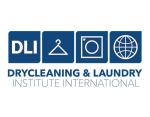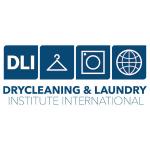CHICAGO — Insurance is one of those rare purchases that we hope we never have to use, but almost inevitably there will come a time where having the right kind of policy will make our lives much easier — or even save the day from disaster.
When it comes to business insurance, there are policies that are nice to have, policies that are essential and others that are mandated. To provide clarity on this topic for business owners — especially start-up businesses and smaller business like most drycleaning companies — California insurance agency owner Wallace Wong recently conducted a webinar titled “Insurance Needs for Small Business.”
The webinar was hosted by the Service Corps of Retired Executives (SCORE), an organization where Wong serves as a mentor.
One of the first pieces of advice Wong offered is that, even though it might not be something business owners want to spend their time doing, it pays to educate yourself in this field.
“Most people don’t read their insurance policies,” he says. “That’s why, in your quest to get your business well protected, look over the fine print, or at least talk to an agent who knows a thing or two and can explain it.”
The Need for Insurance
The primary use for business insurance, Wong says, is to manage threats to the company.
“Insurance is basically the shifting of risk,” he says. “If you have $1 or 2 million in the bank, you can self-insure, but most of us don’t. The whole point of insurance for your business is to shift the risk of any kind of damage to the insurance policy.”
Specific cases for insurance include:
Protection from loss of income — “Let’s say you have a retail store and the fire burns down your place, or somebody steals from you,” Wong says. “The inventory that you could have sold can be recovered from your insurance policy.”
Maintain continued financing — When it comes to loans, the bank or other lending organization most likely will require the business owner to have insurance to protect their interests, Wong says. “When financing, a lender or investor might require an owner to show insurance protecting business assets or property. Property does mean real estate but also means your equipment. If you have a laptop, a table, countertops or anything else like that, those are all considered business property.”
Business continuity in recovering from disasters — ”Insurance can help an owner maintain cash flow If there’s a disaster, such as a fire or flood,” Wong says, noting that less-disastrous events are also covered, such as if the city is out drilling the sidewalk and nobody can come into the store. “You are going to lose money. Business continuity insurance will cover that as well.”
In the event of the owner’s disability or death — This is similar to, but not exactly like, life insurance, Wong says. “If you and a partner start a million-dollar business, you probably want to insure each other’s life. Worst-case scenario, if one of you dies, you probably don’t want their spouse to inherit their portion and tell you what to do when they know nothing about how your business operates. It’s called ‘key person insurance.’” There’s also disability insurance, in case an owner gets hurt and can’t operate in the business.
Come back next Tuesday for Part 2 of this series, where we’ll examine what dry cleaners should look for when it comes to general liability insurance.
Have a question or comment? E-mail our editor Dave Davis at [email protected].



























































































